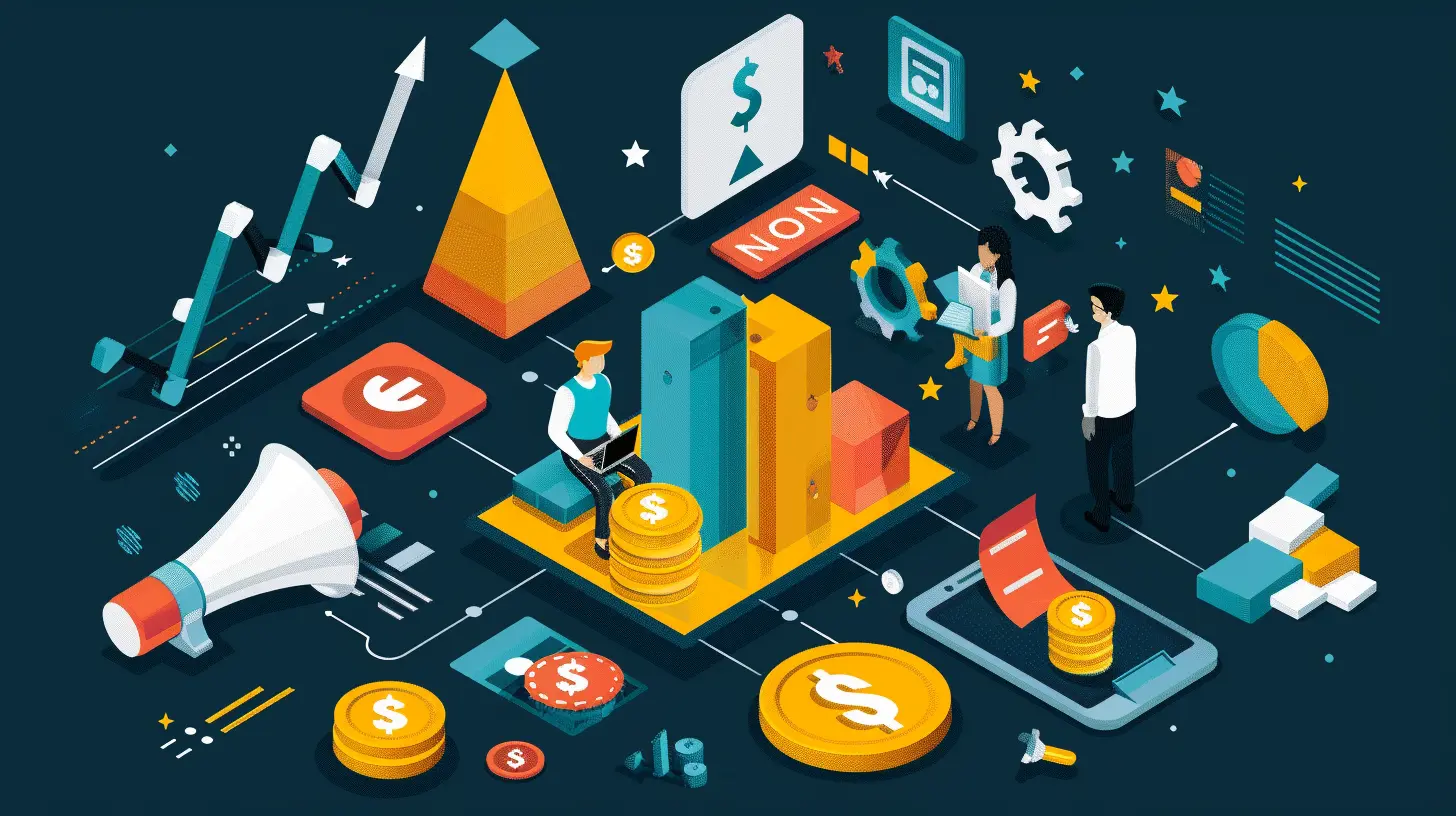Event Marketing: Creating Memorable Experiences That Sell
2 May 2025
Every business wants to leave a mark in the minds of its audience. It’s not just about the products or services you offer; it’s about how you present them. This is where event marketing comes in—an engaging, unforgettable way to connect with your audience and, yes, drive sales. But pulling off successful event marketing isn't a walk in the park. It takes creativity, strategy, and a deep understanding of your audience's desires.
So let’s break it down, shall we? Why is event marketing powerful? How can you roll out experiences that stick in people’s minds like glitter on glue? And most importantly, how do these events translate into dollars? Let’s dive in.
What Is Event Marketing?
Event marketing is exactly what it sounds like—using live or virtual events to promote your brand, product, or service. Think about trade shows, conferences, workshops, webinars, or even pop-up shops. Whether it’s a high-energy concert or a cozy, intimate seminar, the goal is the same: create an authentic interaction between your brand and your audience.This isn’t just about slapping your logo on a standee at a convention. It’s about making people feel something. Imagine your event as both the stage and the show, setting the scene for an unforgettable brand experience. And when done right? That emotional connection leads to trust, loyalty, and—cue the cash register sound—sales.
Why Event Marketing Works
You might be thinking, “Isn’t digital marketing enough these days?” Sure, the online world is huge, but humans crave connection. Events build that bridge. They give your audience a chance to see, touch, and experience your brand firsthand. Here’s why it works:1. It’s All About Experiences
People rarely remember ads, but they never forget how you made them feel. Events create those feelings. Whether it’s excitement, curiosity, or joy, the experience sticks in attendees’ minds.2. Trust Is Built in Real Time
There’s something powerful about face-to-face interactions (even virtual ones, if done right). You’re not a faceless brand behind a screen; you’re relatable, approachable, and human.3. It Encourages Word of Mouth
People love to share cool experiences. Whether they're snapping photos at your event for Instagram or telling their coworkers, event marketing has the potential to go viral, expanding your reach organically.4. It Converts
Let’s cut to the chase. Events drive conversions. A well-executed event isn’t just a PR opportunity—it’s a sales machine. Whether it’s sign-ups, purchases, or inquiries, attendees are already invested in your brand by the time they walk out the door (or log off).
How To Create Memorable Experiences That Actually Sell
Enough theory, let’s talk action. How do you create events that have people walking away thinking, “Wow, that was incredible!”? Here’s a roadmap:1. Start With Your Why
First thing’s first—be crystal clear about your purpose. Are you launching a product? Building brand awareness? Generating leads? Your “why” will guide your planning process, from the format of the event to the guest list.2. Know Your Audience Like the Back of Your Hand
Your event isn’t for everyone—it’s for your target audience. What do they care about? What problems do they need solved? Build your event around their needs. For example, if you're targeting millennials, think about interactive experiences or Instagram-worthy decor.3. Create Shareable Moments
Let’s be real: we live in the age of hashtags and TikTok trends. Give your attendees moments to share. Whether it’s a quirky photo booth, an unforgettable giveaway, or a big reveal, these “wow” factors keep your event top of mind—and all over social media.4. Leverage Technology
This is non-negotiable. Whether it’s livestreaming for a virtual audience, using event apps to enhance in-person interactions, or deploying AR/VR, tech is your best friend in creating a memorable experience. It also makes things smoother for your attendees.5. Engage, Don’t Just Present
Skip the boring speeches and make your event interactive. Panels, Q&As, hands-on workshops—these are all ways to actively engage your audience rather than lecturing them. Remember, events are a two-way street.6. Set the Right Mood
The environment matters. Lighting, music, seating arrangements—they all contribute to the vibe of your event. Whether you’re going for sleek and professional or fun and casual, make sure every detail aligns with your brand’s personality.7. Follow Up Like a Pro
The event doesn’t end when the lights go out. Follow up with attendees afterward. Send them an email thanking them for attending, share highlights of the event, or offer an exclusive deal. This keeps the momentum going and nudges conversions.
Types of Event Marketing
Event marketing isn’t one-size-fits-all. Your goals and audience will determine which type of event is right for you. Here are some of the most effective formats:1. Trade Shows
Trade shows are like a buffet of brands. They’re great for networking and showing your industry expertise. Just make sure your booth or display stands out!2. Conferences
Hosting a conference can position your brand as a thought leader. Provide value with engaging speakers, panels, and workshops.3. Product Launches
Got something new? Product launches are your chance to make a splash. Make it exclusive, exciting, and newsworthy.4. Pop-Up Events
Pop-up events are short-term, experiential, and often unexpected. They’re perfect for building buzz and creating a sense of urgency.5. Virtual Events
Thanks to technology, virtual events have become increasingly popular. They’re budget-friendly, accessible, and easy to scale. Don’t underestimate their power to create authentic connections.Measuring the Success of Your Event
All this effort is for nothing if you can’t measure results. How do you know if your event was worth it?1. Attendance
How many people showed up? Did you reach your target number? And don’t just count heads—track the quality of attendees.2. Engagement
Did attendees actively participate? Monitor social media mentions, hashtag usage, and interactions during the event.3. Leads Generated
How many new contacts did you collect? Did you get valuable prospects into your sales funnel? Tools like attendee registration and lead forms are crucial here.4. Sales or Conversions
This is the big one. Did the event result in purchases or sign-ups? Compare event costs against the revenue generated to calculate ROI.5. Feedback
Ask attendees what they thought. Surveys, feedback forms, or even casual conversations can give you insights into what worked and what didn’t.Common Mistakes to Avoid
Even the best-laid plans can go awry. These are the pitfalls to steer clear of:- Neglecting Promotion: If no one knows your event exists, it doesn't matter how amazing it is. Market it well in advance.
- Overcomplicating Things: Keep logistics simple and seamless for attendees. Don’t make them jump through hoops.
- Ignoring the Follow-Up: Post-event communication is your golden ticket to turning attendees into customers.
Final Thoughts
Event marketing is a game-changer for businesses wanting to make a lasting impression. At its core, it’s all about creating an experience that resonates with your audience, sparkles in their memory, and ultimately drives them to act. Yes, it takes effort, but the payoff? Totally worth it. So go ahead—dream big, plan meticulously, and execute with passion. Because when it comes to event marketing, you’re not just selling a product—you’re selling an experience.all images in this post were generated using AI tools
Category:
MarketingAuthor:

Remington McClain
Discussion
rate this article
6 comments
Carmen Schultz
Great insights! Memorable experiences truly enhance engagement and drive sales.
May 14, 2025 at 2:22 AM

Remington McClain
Thank you! I'm glad you found the insights valuable. Memorable experiences are indeed key to boosting engagement and sales!
Maverick McNair
Event marketing is a powerful tool for creating unforgettable experiences. When executed strategically, it not only captivates audiences but also drives sales and strengthens brand loyalty. Invest wisely!
May 9, 2025 at 3:41 AM

Remington McClain
Absolutely! Strategic event marketing not only enhances audience engagement but also boosts brand loyalty and sales, making it a vital investment for any brand. Thank you for your insights!
Otis Newman
Great insights! Event marketing truly transforms ordinary gatherings into unforgettable experiences. Engaging your audience on this level not only boosts brand loyalty but also drives sales. Excited to implement these strategies! Thanks for sharing!
May 7, 2025 at 8:08 PM

Remington McClain
Thank you for your kind words! I'm glad you found the insights valuable. Excited to see how you implement these strategies!
Jemima Hahn
Great article! Emphasizing storytelling in event marketing can significantly enhance audience engagement. Consider incorporating interactive elements to create lasting memories, as these experiences often lead to stronger brand loyalty and increased sales. Keep up the great insights!
May 7, 2025 at 2:40 AM

Remington McClain
Thank you for your thoughtful feedback! I completely agree—interactive elements can truly elevate audience engagement and foster brand loyalty. Appreciate your support!
Sloane Bishop
Event marketing: where you sell products while making people feel like they’re at a party—complete with confetti, awkward networking, and maybe even a dance-off. Who knew closing deals could come with such an entertaining side of fun? Let’s boogie! 🎉
May 6, 2025 at 8:35 PM

Remington McClain
Absolutely! Event marketing transforms sales into unforgettable experiences, blending fun and connection to drive engagement. Let’s keep the party going! 🎉
Vanya Heath
Great insights! Creating memorable experiences really is the key to successful event marketing!
May 5, 2025 at 6:40 PM

Remington McClain
Thank you! I’m glad you found the insights valuable. Memorable experiences truly are essential for impactful event marketing!
MORE POSTS

How Corporate Social Responsibility Affects Customer Retention

The Role of Reverse Logistics in Modern Supply Chain Operations

How to Persuade Without Pressuring in Business Negotiations

The Role of Blockchain and Cryptocurrency in Modern Finance

How Much Should You Have in Personal Reserves Before Starting a Business?